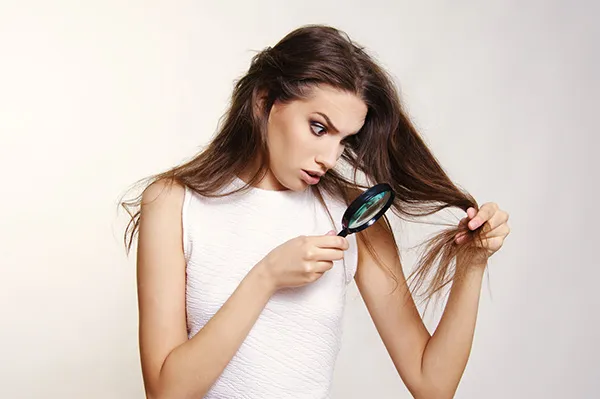
For women who are "fighting" with fine hair every morning, here are some useful tips for thin, toneless hair.
Why do hair become thin?
As you age your hair becomes thinner and more brittle. Hair also ages, and in women this is especially true after menopause. It is commonly thought that the only sign of aging is the onset of white hair, but other effects of age concern the loss of strength and volume due to increasingly thinner hair.
The cyclic activity of the follicle periodically renews the hair. The hair follicle, however, ages and, over time, the hair becomes a little thinner, less thick and less resistant.
Hair is therefore increasingly thinned over time: we all lose 10% of our hair every 10 years and we don't realize it. These hair fall and no longer grow because the hair follicle has exhausted its potential. The result is that the hair is progressively impoverished.
Age-related thinning and thinning of the hair shaft is often not immediately perceived by people. You only realize that you no longer have thick, vaporous hair as at 20 years of age, without ever having had problems with excessive hair loss.
Bleaching of hair is caused by a progressive decrease in melanocytes of the follicle and is a consequence of aging. The first white hair appears at temple level around the age of 30 and, usually, at the age of 50, 50% of the hair becomes white.
White hair is thicker and grows faster than pigmented hair. The most practical solution to cover white hair is dyes, such as Testanera hair coloring. The latest trends have decreed the triumph of red: red hair color is fashionable and fashionable.
Thin hair: Which cut is suitable?
For fine hair, you should always use a suitable cut.
Clear scaling is not recommended, as a small breeze of wind or light rain will ruin the entire hairstyle.
To give volume to thin hair it is advisable to scale the tips and leave a fringe side.
Those who want curly hair can indulge in curlers, foams and gels or use the permanent classic for a more lasting effect.
How to strengthen fine hair: thin hair products
Every time you wash your hair, treat yourself to a gentle skin massage.
Fine hair needs care and treatment that is appropriate to its texture. A gentle shampoo with active ingredients such as biotin (it provides tightness), panthenol and protein (for greater elasticity of the hair) is ideal.
Avoid using "two-in-one products" (such as shampoo and conditioner together) that can overweight fine hair.
Better use targeted treating conditioners to have hair that is combable, shiny and resistant. The balm is applied after each shampoo and is essential so as not to damage the hair which, when wet, is particularly fragile. Then apply the conditioner carefully over the lengths with a comb and rinse the hair very well, to remove any residue.
Even the mask or thin hair pack should always be applied after shampooing: these are treatments for restructuring the hair, thanks to a 15-20 minute laying. Apply the hair mask only 1-2 times a week and rinse carefully.
Balm and mask are essential for the beauty of thin hair because they form a protective film, especially if you have long hair and if you make dyes, discolorations or permanent.
The foam, on the other hand, gives volume and is useful especially in the case of very thin hair: just massage a walnut on the whole wet hair, from the root to the tips and then pass the hair dryer. The foam also serves to give greater hold to the combing.
Finally, the serum gel without rinsing is a real "elixir of long life" for thin hair: it creates a protective film against aggressions of the external environment.
Serums without rinsing, to be applied to the hair (especially on the tips) at the end of the hairdo, are products that make the hair brighter and stronger.
Brushing hair does not cause hair loss, this is one of the "myths to be explored" that affect the hair. However, it is important to comb your hair gently with a suitable comb or brush, avoiding tearing the knots to avoid hair breakage and the formation of double ends. And above all avoid brushing your hair too often, but do so only when you really need it.
When you're in a hurry in the morning, spray a volumizing spray on dry hair, comb the curls or shake your hair, then cotton it a little. Fix the combing with light lacquer.
Food supplements for fine hair
Remember that a healthy lifestyle helps to strengthen your hair: enough sleep and a diet rich in vitamins and minerals (whole grains, milk, fruit and vegetables) strengthen your hair thin.
Results are best if you also take a specific supplement. The hair follicle, from which the hair is born, is nourished by blood. The intake of substances useful for the production of a healthy and strong hair is always to be expected in cases where the hair is fragile and devitalized.
Very useful for strengthening thin hair are dietary supplements based on:
B vitamins;
antioxidants;
keratin;
isoflavones of the Red clover;
copper;
iron;
selenium.
You can request natural hair supplements in herbal medicine.